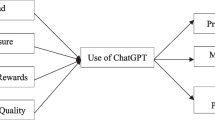Abstract
This paper presents an analysis of emotional and affectively toned discourse in biomedical engineering researchers’ accounts of their problem solving practices. Drawing from our interviews with scientists in two laboratories, we examine three classes of expression: explicit, figurative and metaphorical, and attributions of emotion to objects and artifacts important to laboratory practice. We consider the overall function of expressions in the particular problem solving contexts described. We argue that affective processes are engaged in problem solving, not as simply tacked onto reasoning but as integral to it. The examples we present illustrate the close relation of emotion to problem solving and experimentation; they also implicate social and cultural dimensions of emotion expression. The analysis underscores a need to consider emotional expression to be intimately and importantly tied to the cognitive achievements and social negotiations of laboratory practices.
Similar content being viewed by others
Notes
The designations “Lab A” and “Lab D” are arbitrary.
We place the word “theory” in quotation marks here because what grounded theory advocates mean by that term better approximates what Tweney 1989, has called a “framework.”.
References
Arnold MB (1960) Emotion and personality. vol 1: psychological aspects. Columbia University Press, New York
Brown JS, Collins A, Duguid P (1989) Situated cognition and the culture of learning. Educ Res 18:32–42
Emirbayer M, Goldberg CA (2005) Pragmatism, bourdieu, and collective emotions in contentious politics. Theor Soc 34(5/6):469–518
Feist GJ (2006) The psychology of science and the origins of the scientific mind. Yale University Press, New Haven
Fetzer J (2003) The sky is not falling…: accepting failure to create innovation in experimentation. Ann Biol Chem 375(5):597–598
Franken R (2006) Human motivation, 6th edn. Wadsworth, Florence
Fridlund AJ (1994) Human facial expression: an evolutionary view. Academic Press, San Diego
Fridlund AJ, Russell JA (2006) The functions of facial expressions: what’s in a face? In: Manusov V, Patterson ML (eds) Sage handbook of nonverbal communication. Sage, Newbury Park, pp 299–320
Glaser B, Strauss A (1967) The discovery of grounded theory: strategies for qualitative research. Aldine Publishing Company, Chicago
Greeno JG (1998) The situativity of knowing, learning, and research. Am Psychol 53:5–26
Griffiths P, Scarantino A (2008) Emotions in the wild: the situated perspective on emotion. In: Robbins P, Aydede M (eds) The Cambridge handbook of situated cognition. Cambridge University Press, Cambridge, pp 437–453
Haidt J (2007) The new synthesis in moral psychology. Science 18(316):998–1002
Hutchins E (1995a) How a cockpit remembers its speeds. Cogn Sci 19:265–288
Hutchins E (1995b) Cognition in the wild. MIT Press, Cambridge
Johnson M (2008) The meaning of the body: aesthetics of human understanding. University Of Chicago Press, Chicago
Kövecses Z (2000) Metaphor and emotion: Language, culture and body in human feeling. Cambridge University Press, Cambridge
Kuhn T (1977) Objectivity, value judgment, and theory choice. In: Kuhn T (ed) The essential tension: selected studies in scientific tradition and change. University of Chicago Press, Chicago, pp 320–339
Lakoff G, Johnson M (1999) Philosophy in the flesh. Basic Books, New York
Lazarus RS (2006) Stress and emotion: a new synthesis. Springer, New York
Lazarus RS, Folkman S (1987) Transactional theory and research on emotions and coping. Eur J Pers 1:141–169
Lazarus A, Averill JR, Opton EM (1970) Toward a cognitive theory of emotions. In: Arnold MB (ed) Feelings and emotions. Academic Press, New York, pp 207–232
LeDoux J (1996) The emotional brain: the mysterious underpinnings of emotional life. Simon and Schuster, New York
Mahoney MJ (1976) Scientist as subject. Ballinger Publishing, Cambridge
Maslow A (1966) The psychology of science: a reconnaissance. Harper & Row, New York
McAllister JW (1996) Beauty and revolution in science. Cornell, Ithica
Mitroff I (1974) The subjective side of science. Elsevier, Amstredam
Moore S, Oaksford M (2002) Emotional cognition. John Benjamins, Amstredam
Nersessian NJ (2009) How do engineering scientists think? Model-based simulation in biomedical engineering laboratories. Topics 1(3):730–757
Nersessian NJ, Kurz-Milcke E, Newstetter WC, Davies J (2003) Research laboratories as evolving distributed cognitive systems. In: Proceedings of the 25th annual conference of the cognitive science society, pp 857–862
Osbeck L, Nersessian N (2006) The distribution of representation. J Theor Soc Behav 36(2):141–160
Parkinson B, Fischer AH, Manstead ASR (2005) Emotions in social relations: Cultural, group and interpersonal processes. Psychology Press, New York
Petroski H (2008) Success through failure: the paradox of design. Princeton University Press, Princeton
Polanyi M (1973) Personal knowledge: towards a post-critical philosophy. University of Chicago Press, Chicago Originally published 1958
Resnick LB, Pontecorvo R, Säljö C (1997) Discourse, tools, and reasoning. In: Resnick LB, Pontecorvo R, Säljö C, Burge B (eds) Discourse, tools and reasoning: essays on situated cognition. Cambridge University Press, New York, pp 1–22
Roseman IJ (1991) Appraisal determinants of discrete emotions. Cogn Emotion 5:161–200
Simonton DK (2004) Creativity in science: chance, logic, genius, and zeitgeist. Cambridge University Press, Cambridge
Strauss A, Corbin J (1998) Basics of qualitative research: techniques and procedures for developing grounded theory, 2nd edn. Thousand Oaks, Sage
Thagard P (2008) Hot thought. MIT Press, Cambridge
Tweney R (1989) A framework for cognitive psychology of science. In: Gholson B, Neimeyer RA, Houts AC (eds) Psychology of science: contributions to metascience. Cambridge University Press, New York, pp 342–366
Varela F, Thompson E, Rosch E (1991) The embodied mind: cognitive science and human experience. MIT Press, Cambridge
Watson JD (1969) The double helix. New American Library, New York
Acknowledgments
We gratefully acknowledge the support of the National Science Foundation ROLE Grants REC0106773 and DRL0411825 to Nancy Nersessian and Wendy Newstetter in conducting the research on the laboratories. This analysis was completed while the first author was a senior research scientist on the latter. The data derive from ethnographic research conducted with the assistance of Wendy Newstetter and our research group, especially Ellie Harmon, Elke Kurz-Milcke, Christopher Patton, and Sanjay Chandrasekharan. We thank the members of the research labs for allowing us into their work environment, letting us observe them, and granting us numerous interviews.
Author information
Authors and Affiliations
Corresponding author
Rights and permissions
About this article
Cite this article
Osbeck, L.M., Nersessian, N.J. Affective problem solving: emotion in research practice. Mind Soc 10, 57–78 (2011). https://doi.org/10.1007/s11299-010-0074-1
Received:
Accepted:
Published:
Issue Date:
DOI: https://doi.org/10.1007/s11299-010-0074-1




